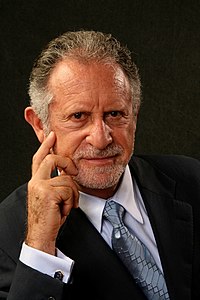Obstetrics and gynaecology is the medical specialty that encompasses the two subspecialties of obstetrics and gynaecology. The specialization is an important part of care for women's health.
Obstetrics is the field of study concentrated on pregnancy, childbirth and the postpartum period. As a medical specialty, obstetrics is combined with gynecology under the discipline known as obstetrics and gynecology (OB/GYN), which is a surgical field.
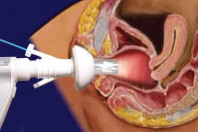
Gynaecology or gynecology is the area of medicine that involves the treatment of women's diseases, especially those of the reproductive organs. It is often paired with the field of obstetrics, forming the combined area of obstetrics and gynaecology (OB-GYN).
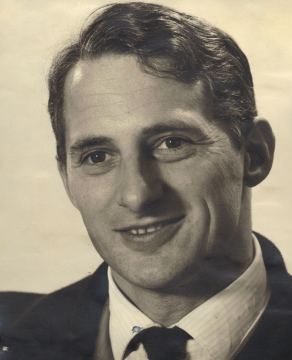
Edwin Carlyle "Carl" Wood,, FRANZCOG was a prominent Australian gynaecologist, best known for his pioneering work developing and commercialising the technique of in-vitro fertilisation (IVF). He gained considerable international and national attention for his wide-ranging contributions in the field of women's health over a period of almost 50 years, although not all of it was positive given the controversial nature of many of his endeavours.

Estradiol acetate (EA), sold under the brand names Femtrace, Femring, and Menoring, is an estrogen medication which is used in hormone therapy for the treatment of menopausal symptoms in women. It is taken by mouth once daily or given as a vaginal ring once every three months.

Reproductive medicine is a branch of medicine concerning the male and female reproductive systems. It encompasses a variety of reproductive conditions, their prevention and assessment, as well as their subsequent treatment and prognosis.
Howard Lund Judd was an American physician and medical researcher. He specialized in obstetrics and gynaecology, and contributed significant research to the field of women's health, in particular about menopause and hormone replacement therapy.
Reproductive endocrinology and infertility (REI) is a surgical subspecialty of obstetrics and gynecology that trains physicians in reproductive medicine addressing hormonal functioning as it pertains to reproduction as well as the issue of infertility. While most REI specialists primarily focus on the treatment of infertility, reproductive endocrinologists are trained to also test and treat hormonal dysfunctions in females and males outside infertility. Reproductive endocrinologists have specialty training (residency) in obstetrics and gynecology (ob-gyn) before they undergo sub-specialty training (fellowship) in REI.

Lori Anne Brotto is a Canadian psychologist best known for her work on female sexual arousal disorder (FSAD).
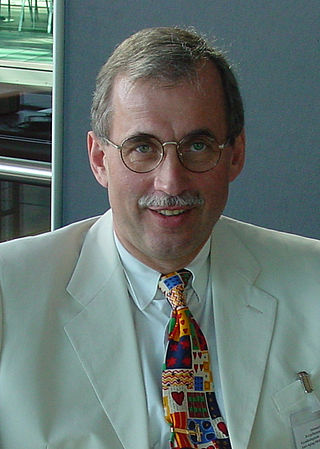
Thomas N. Rabe is a German professor for gynaecology and obstetrics at the University Hospital Heidelberg. He is author of several scientific publications and reference books.
Estrogen dominance (ED) is a theory about a metabolic state where the level of estrogen outweighs the level of progesterone in the body. This is said to be caused by a decrease in progesterone without a subsequent decrease in estrogen.
The following outline is provided as an overview of and topical guide to obstetrics:
John William Winston Studd was a British gynaecologist and an academic and medical historian.
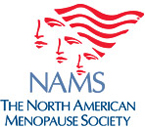
The North American Menopause Society (NAMS), founded in 1989, is a nonprofit, multidisciplinary organization with the mission of promoting the health and quality of life of women during midlife and beyond through an understanding of menopause and healthy aging. Based in Cleveland, Ohio, NAMS has more than 2,800 members from 51 countries, with 88% of its members from North America. Its membership includes experts from many disciplines such as medicine, nursing, sociology, psychology, nutrition, anthropology, epidemiology, pharmacy, and education.

Estradiol dipropionate (EDP), sold under the brand names Agofollin, Di-Ovocylin, and Progynon DP among others, is an estrogen medication which has been used in hormone therapy for menopausal symptoms and low estrogen levels in women and in the treatment of gynecological disorders. It has also been used in feminizing hormone therapy for transgender women and in the treatment of prostate cancer in men. Although widely used in the past, estradiol dipropionate has largely been discontinued and is mostly no longer available today. It appears to remain in use only in Japan, Macedonia, and Australia. Estradiol dipropionate is given by injection into muscle at intervals ranging from once or twice a week to once every week and a half to two weeks.
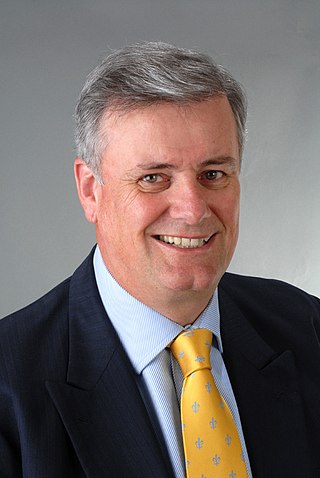
Alastair Harvey MacLennan,, MB ChB, MD, FRCOG, FRANZCOG is a Scottish-Australian physician, professor of obstetrics and gynaecology, medical researcher, and a community health advocate. He studied and practised medicine in Glasgow, Chicago, and Oxford before moving to Australia in 1977 to take up a position at the University of Adelaide, where he went on to become the Professor and Head of the Discipline of Obstetrics and Gynaecology in 2006. He retired from his full-time academic position in 2013, and he is now Emeritus Professor of Medicine. He leads research projects at the Robinson Research Institute, and he is Head of the university's Cerebral Palsy Research Group.
Jean Ginsburg was an English physician and physiologist who specialised in reproductive endocrinology and infertility.
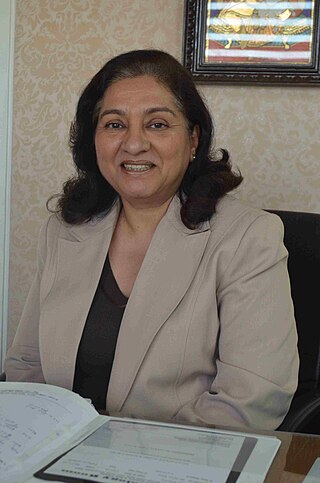
Jaideep Malhotra is an India-based gynecologist, infertility specialist and an ace sonologist. She is the founder of the Infertility Centre of Rainbow IVF and also serves as the director of the hospital. Malhotra received award from Prime minister of Nepal for first 100 IVF babies of Nepal and her clinic, Rainbow IVF was first in Uttar Pradesh for successful IVF, ICSI, TESA, twins and triplets.
Qiao Jie is a Chinese obstetrician, reproductive physician and biologist. She is an academician of the Chinese Academy of Engineering (CAE) and currently president of Peking University Third Hospital. She is also director of the National Clinical Research Center on Obstetrics & Gynecology, president of China Women Doctors' Association and chair for the Reproductive Medical Society of Chinese Medical Doctor Association.

Duru Shah is a Mumbai-based gynaecologist academic and women activist. She is the Founder President of the PCOS Society, India and a promoter of adolescent girls and women's health and infertility in India. Shah is also the promoter of Metropolis Healthcare Ltd. She is also a Consultant ObGyn.: Breach Candy Hospital, Jaslok Hospital, Mumbai.
